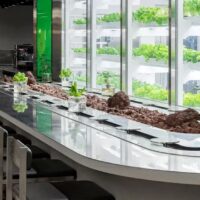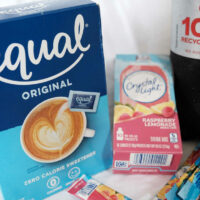 Image Credit: Patagonia Provisions
Image Credit: Patagonia Provisions
Every week we track the business, tech and investment trends in CPG, retail, restaurants, agriculture, cooking and health, so you don’t have to. Here are some of this week’s top headlines.
A new report has found that agrifoodtech funding declined by 44% in 2022, bringing total funding to $29.6 billion. Kroger and Albertsons want to merge in a $20 billion deal. If antitrust regulators approve, the definition of a grocery store grows further. Food startups were scrambling at Expo West when news broke about Silicon Valley Bank’s collapse. Many with accounts may not make payroll this year.
In other news, we are excited to spotlight our podcast in partnership with AgFunder: New Food Order, a nuanced investigation into the business of tackling our climate and social crises through food and agriculture. Read all about why we launched the podcast.
And be sure to subscribe and share!
Our newsletter takes a lot of time and resources to produce. Make a one time or monthly contribution to help us keep it going. Whether it’s $5 or $500, every bit helps and shows us that you value our work.
1. Climate Agrifoodtech Bucks Global Funding Decline As Sector Brings in $29.6B in 2022 – AFN
The macro headwinds startups face right now are also driving more interest in agrifoodtech as a climate tech solutions to our most pressing problems.
2. A Supermarket Megamerger Will Redefine What You Buy at the Grocery Store – WSJ
Kroger and Albertsons want to merge in a $20b deal. If antitrust regulators approve, the definition of a grocery store grows further.
3. Food Startups Describe a ‘Roller Coaster of Emotions’ As Silicon Valley Bank Collapsed – Food Dive
Many small companies with accounts at the bank were showing off their products at Natural Products Expo West as the news went out, sending many founders into a frenzy.
4. Why Patagonia Just Bought a Cracker Company – Fast Company
In its first acquisition in more than 20 years, Patagonia bought cracker company Moonshot, which uses regenerative agriculture practices, in an attempt to further grow its new food division.
5. Global Craze for Collagen Linked to Brazilian Deforestation – The Guardian
Investigation finds cases of the wellness product, hailed for its anti-aging benefits, being derived from cattle raised on farms damaging tropical forest.
6. Bars, Hotels and Restaurants Become the Economy’s Fastest-Growing Employers – WSJ
Hospitality companies are reviving their hiring after making pandemic cuts, offsetting slower jobs growth in the technology industry.
7. Salad Chain That Thought It Was a Tech Firm Looks Wilted – WSJ
Sweetgreen can’t compete as a restaurant chain with a Silicon Valley cost structure.
8. Food Waste Tech Company Looks to Major Expansion with $1B Deal – Food on Demand
Divert, a firm that turns food waste into renewable natural gas, is gearing up for a nationwide expansion.
9. Can the United Farm Workers Rise Again? – New York Times
Decades after Cesar Chavez made the union a power in California fields, it has lost much of its clout. Membership dropped precipitously, from 60k to 5.5k. It hopes a new law will turn the tide.
10. Inside the ‘Top Chef’ Industrial Complex – New York Times
Entering its 20th season, the sprawling Bravo franchise has changed the way Americans eat and become a mirror of the restaurant industry.
11. You Can Now Calculate Your Grocery List’s Carbon Footprint – Time
CarbonCloud has just released its free searchable database online, listing the carbon footprint of 10k branded food and beverage products found on American grocery shelves.





